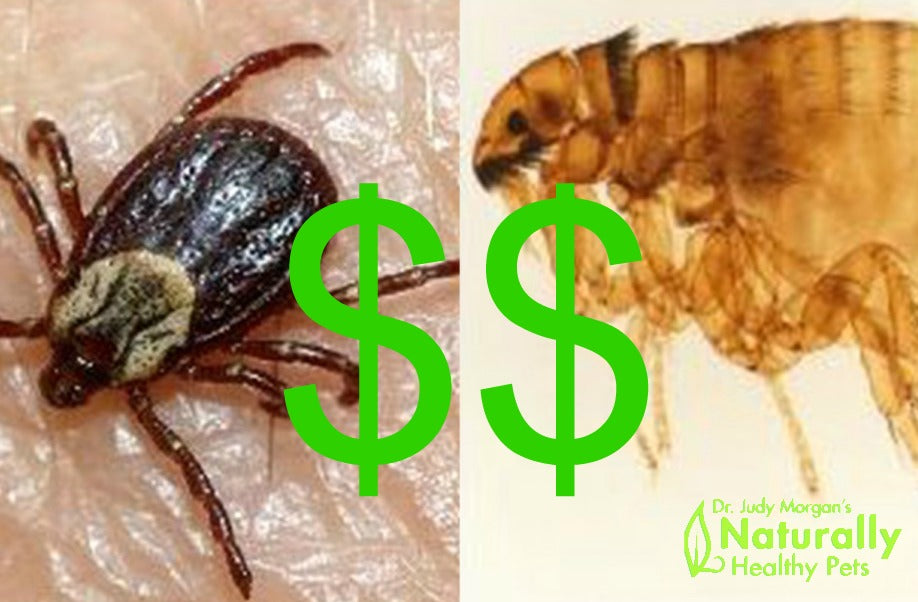As a veterinarian in the state of New Jersey, I am required to complete a set number of hours of continuing education in order to fulfill requirements set by the state board of examiners. Unfortunately, alternative medicine classes do not count as continuing education (maybe someday they will be less close-minded), so I must complete classes in traditional medicine. I really don't mind, since it's always good to know about new diagnostic testing and treatments available. It also keeps me up to date on the new and toxic products that are being promoted as beneficial for our beloved pets. Recently I signed on for a course in parasite prevention, knowing full well that there would be promotion of many of the chemicals that are killing pets worldwide. This is a multi-part course and I'm already seething after reading part 1. This is the information given to veterinarians around the world.
After a discussion of the many flea-borne diseases that are transmissible to our pets and possibly to humans, the conversation turned to the financial impact on veterinary practices that weren't encouraging all pet owners to use year-round heartworm, flea and tick prevention. (Yup, it came down to money.) They analyzed 2.3 million transactions for 263,000 dogs over a 12-month period across 99 practices; the results showed heartworm preventive compliance was just 25% and flea/tick preventive compliance was just 16%. The financial impact to each practice was huge, with an annual opportunity cost per practice of $400,000. Unfortunately, the study did not look at the relevance of:
- practice location
- individual pet exposure to fleas, tick, and heartworms
- environment pets lived in
- travel pets might undergo for significant portions of the year
- individual need for flea, tick or heartworm prevention
The pharmaceutical companies work diligently to convince the veterinary community that all pets should receive monthly preventative chemicals with no regard to exposure potential. Even veterinary experts, like Dr. Susan Little, a veterinary parasitologist at Oklahoma State University, make blanket statements. Dr. Little and other parasite experts have a mantra: every pet, every month, all year long. According to the OSU website, Dr. Little's laboratory has received research support from the National Institutes of Health, private foundations, and the veterinary health industry.
I don't feel we should leave the decisions regarding our individual pet's health up to "big pharma". Each pet is an individual and should be treated as such. There is no one-size-fits-all and following a mantra of every pet, every month, all year long may result in the needless poisoning of millions of pets. Check this map for occurrence of disease in your region.
Don't be bullied. Choose the right plan for your pets. My pets are treated without the use of harmful chemicals every month all year long. I do not live in a high risk area for heartworms and my pets have minimal exposure to fleas and ticks. I treat when appropriate, not based on sales and profit.

